Years 3 and 4
In Years 3 and 4, learning in The Arts builds on the experience of the previous band. It involves students making and responding to artworks independently and collaboratively with their classmates and teachers.
As they experience The Arts, students draw on artworks from a range of cultures, times and locations. They explore the arts of Aboriginal and Torres Strait Islander Peoples and of the Asia region and learn that they are used for different purposes. While the arts in the local community should be the initial focus for learning, students are also aware of and interested in the arts from more distant locations and the curriculum provides opportunities to build on this curiosity.
As they make and respond to artworks, students explore meaning and interpretation, elements and forms, and social and cultural contexts of the arts. They make personal evaluations of their own and others' artworks, making connections between their own artistic intentions and those of other artists.
Students continue to learn about safe practices in the arts and in their interactions with other artists. Their understanding of the role of the artist and the audience builds on their experience from the previous band. As an audience, students focus their attention on the artwork and respond to it. They consider why and how audiences respond to artworks.
In Years 3 and 4, students' awareness of themselves and others as audiences is extended beyond the classroom to the broader school context.
In Drama, students:
- extend their understanding of role and situation as they offer, accept and extend their ideas in improvisation
- vary voice and movement to create role when devising drama
- learn about focus, tension, space and time in their own and others' drama
- explore meaning and interpretation, forms and elements including voice, movement, situation, time and place, and tension as they make and respond to drama
- use language and ideas to shape dramatic action
- use story structures to shape drama for audiences.
(source: www.australiancurriculum.edu.au)
Achievement Standard
By the end of Year 4, students describe and discuss similarities and differences between artworks they make and those to which they respond. They discuss how they and others organise the elements and processes in artworks.
Students collaborate to plan and make artworks that communicate ideas.
(source: www.australiancurriculum.edu.au)
Achievement Standard
By the end of Year 4, students describe and discuss similarities and differences between drama they make, perform and view. They discuss how they and others organise the elements of drama in their drama.
Students use relationships, tension, time and place and narrative structure when improvising and performing devised and scripted drama. They collaborate to plan, make and perform drama that communicates ideas.
(source: www.australiancurriculum.edu.au)
- Plus Plan
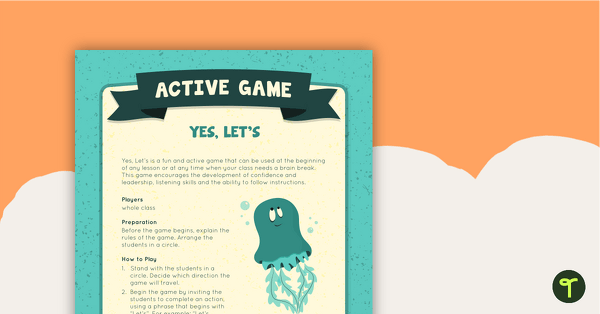
Yes Let's! Active Game
A whole class active game encourages the development of listening skills, confidence and leadership.
- Plus Plan
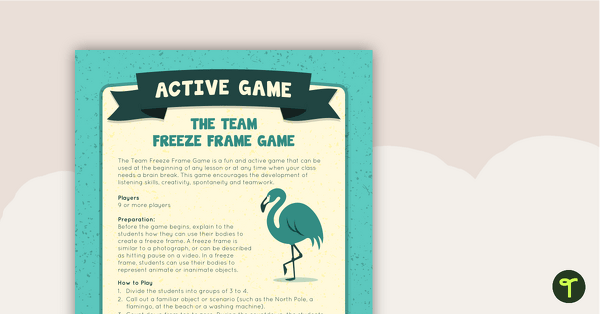
The Team Freeze Frame Active Game
A fun active game that encourages the development of listening skills, creativity, spontaneity and team work.
- Plus Plan
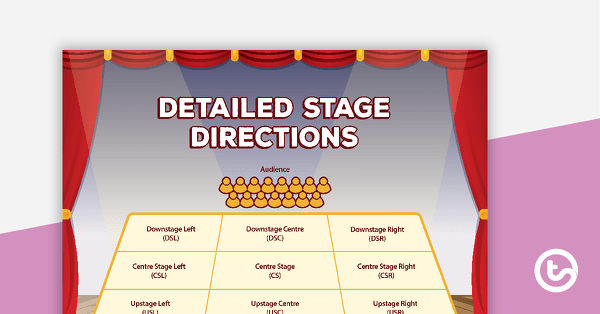
Detailed Stage Directions Poster
A poster explaining detailed stage direction terminology.
- Plus Plan
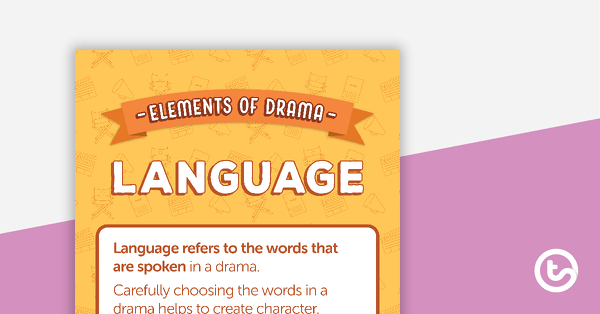
Language - Elements of Drama Poster
A poster that explains the dramatic element of language.
- Plus Plan
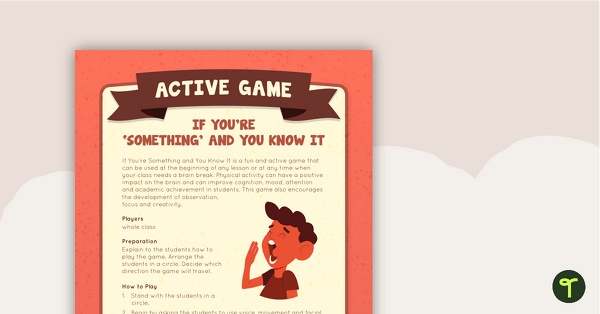
If You're Something and You Know It Active Game
A whole class active game that encourages observation skills, focus and creativity.
- Plus Plan
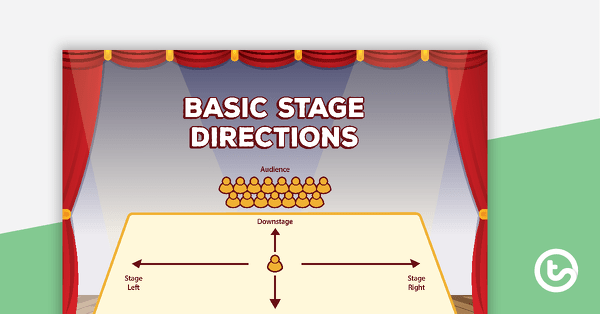
Stage Direction Terminology Posters
A set of 2 posters explaining stage direction terminology.
- Plus Plan
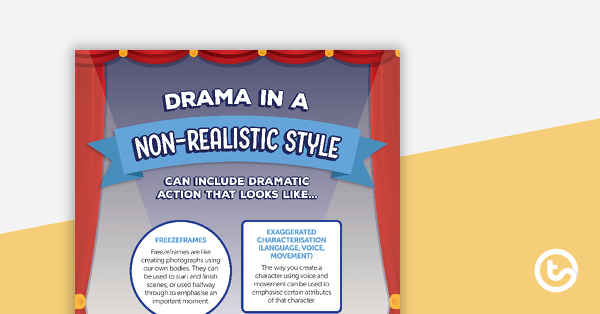
Non-Realism Performance Style Poster
A poster explaining the dramatic performance style of Non-Realism.
- Plus Plan
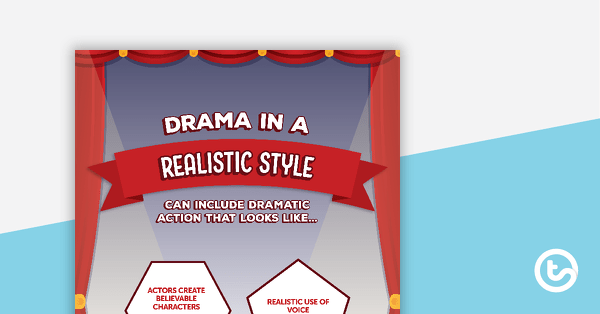
Realism Performance Style Poster
A poster explaining the dramatic performance style of Realism.
- Plus Plan
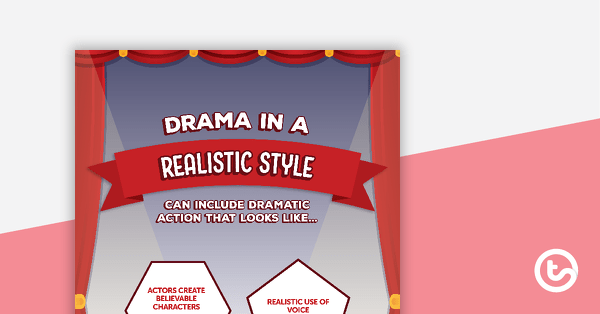
Realism and Non-Realism Performance Styles Posters
A set of 2 posters explaining the theatrical styles of Realism and Non-Realism.
- Plus Plan
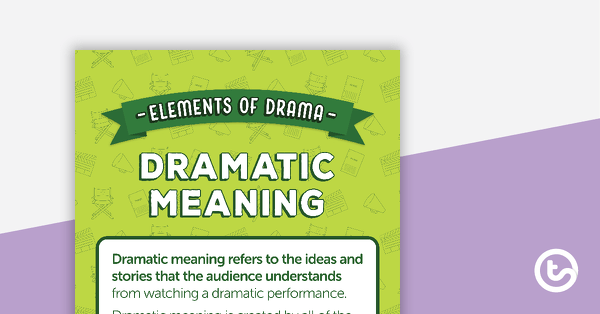
Dramatic Meaning - Elements of Drama Poster
A poster that explains the term 'dramatic meaning'.
- Plus Plan
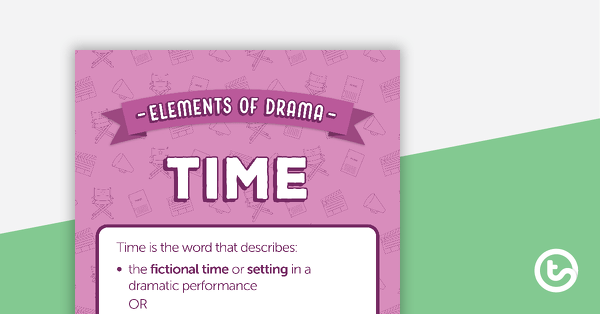
Time - Elements of Drama Poster
A poster that explains the dramatic element of 'time'.
- Plus Plan

Readers' Theatre - Teaching Resource Pack
A comprehensive pack of 33 readers' theatre scripts, catering to a range of age groups and ability levels.